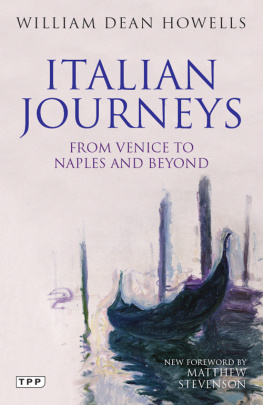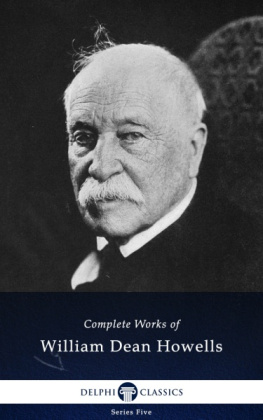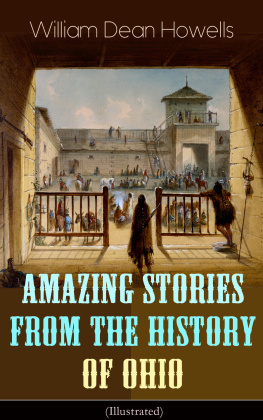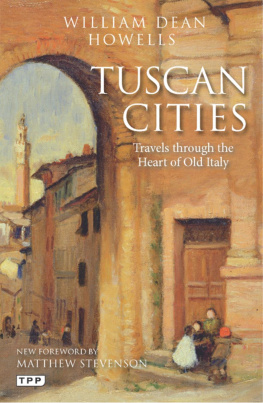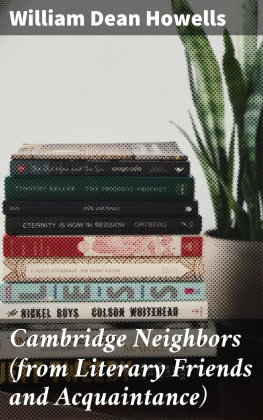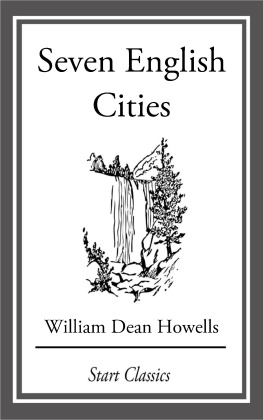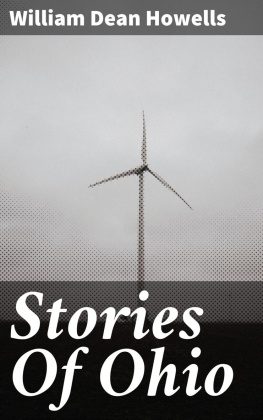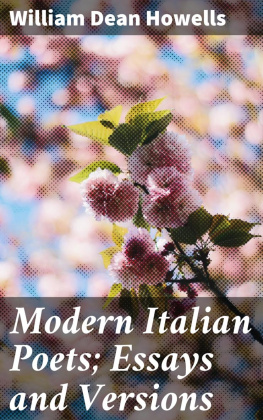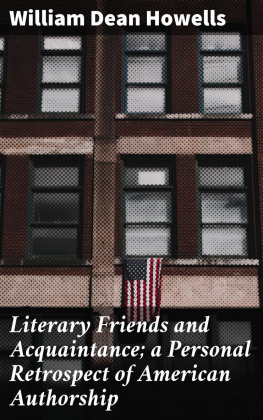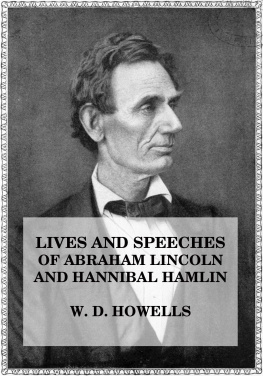William Dean Howells (18371920) writer, critic and pioneer of the American realist school was one of the most influential writers of American fiction during the last quarter of the nineteenth century. A lifelong friend of Mark Twain and a contemporary of Hawthorne, Thoreau and Emerson, Howellss own literary career took off with his novel, A Modern Instance but The Rise of Silas Lapham is his best-known. Widely acknowledged as the American Dean of Letters', Howells was one of the first seven chosen for membership in the American Academy of Arts and Letters, of which he later became president, and which instituted its Howells Medal for Fiction in 1915.
Matthew Stevenson is an American writer who lives in Switzerland. His Letters of Transit: Adventures and Encounters from America to the Pacific Isles is published by Tauris Parke Paperbacks. His most recent book is Remembering the Twentieth Century Limited. He is a contributing editor of Harpers Magazine, to which William Dean Howells contributed 335 articles between 1886 and 1920, notably for the lead column, known as the Editors Easy Chair.
Tauris Parke Paperbacksis an imprint of I.B.Tauris. It is dedicated to publishing books in accessible paperback editions for the serious general reader within a wide range of categories, including biography, history, travel and the ancient world. The list includes select, critically acclaimed works of top quality writing by distinguished authors that continue to challenge, to inform and to inspire. These are books that possess those subtle but intrinsic elements that mark them out as something exceptional.
The Colophon of Tauris Parke Paperbacks is a representation of the ancient Egyptian ibis, sacred to the god Thoth, who was himself often depicted in the form of this most elegant of birds. Thoth was credited in antiquity as the scribe of the ancient Egyptian gods and as the inventor of writing and was associated with many aspects of wisdom and learning.
Italian Journeys
From Venice to Naples
and Beyond
William Dean Howells
Foreword by Matthew Stevenson

Foreword
by Matthew Stevenson
W ho was William Dean Howells (18371920) and why is he the right person to take you around Italy?
In the last half century Howells has faded from literary awareness, remembered, if at all, for his novel, The Rise of Silas Lapham, and as a pioneer of realism in American fiction. English majors at American universities might recall his close friendship with Mark Twain. After that, for most, the Howells trail will grow cold. Who knows that someone so prominent in literary Boston, where Howells was editor of the Atlantic Monthly and wrote novels that explored domestic realities, had even visited Italy, let alone written books about its decadence and splendors?
Were I writing this preface a century earlier, Howells would need no introduction, either to American or British readers. In the late nineteenth century, he was the chairman of American letters, whose vast work as an editor, novelist, short story writer, playwright, essayist, critic, poet, and travel writer set the literary standards for the age. Such was his importance that when he denounced black walnut in one of his novels, it disappeared from fashionable American houses.
His literary cause was a form of democratic realism. In 1887, near the peak of his career, he said that fiction should speak the dialect, the language, that most Americans know the language of unaffected people everywhere and we believe that even its masterpieces will find a response in all readers. Especially in English circles, he was quick to declare the independence of the American novel.
Judge a man by his friends, and look at those that liked and admired Howells. He and Mark Twain were best friends Twain grew up in Missouri, Howells in Ohio, and, at least in after-dinner memories, they shared childhoods similar to that of Huck Finn. Howells also had enduring friendships with Ralph Waldo Emerson (the New England essayist), Richard Henry Dana (Two Years Before the Mast), Henry James (both father and son, of the same name), Bret Harte (short stories), Matthew Arnold (the English critic), Henry Wadsworth Longfellow (the poet), and Harriet Beecher Stowe (the author of Uncle Toms Cabin). He promoted Dostoyevsky and Tolstoy. Among the young writers that he later encouraged and supported were Edith Wharton, Sarah Orne Jewett, Stephen Crane, Vachel Lindsay, and Robert Frost. Willa Cather attended his seventy-fifth birthday. Were you to have asked most of them who they considered to be Americas greatest writer, they likely would have nominated Howells. Well into the twentieth century, writers like Dreiser, Hemingway and Fitzgerald were experimenting with the forms that Howells had coined.
From 1870 to 1910, Howells was the gold standard of American letters, and the book that gained him this currency was his first, Italian Journeys, published in 1867. It was another long journey that took him from Martins Ferry, Ohio, to the summit of American letters. Growing up in a bookish although itinerant family, he spent his school years as a typesetter on his fathers newspaper and later worked as a reporter in Columbus.
In 1860, with the good fortune that would follow his literary career, he wrote a campaign biography of a candidate given little chance for victory in the presidential election: Abraham Lincoln. He wrote the book in less than a month, and even passed on the chance to meet the candidate in person (books, for Howells, were all about business). The biography resonated with Lincoln, and he appointed Howells to serve as the American consul in Venice, Italy, a position he took up in 1861.
Sailing for Europe, Howells left behind a sweetheart from Brattleboro, Vermont, Elinor Mead, who, after some torrid letters, joined him in marriage and in Italy. The newlyweds loved Venice. They lived on the Grand Canal and entertained visiting Americans. The Venetian republic was then an Austrian possession, where it was said even the priests spied for Vienna. Howellss professional obligations were to file an annual report on the traffic that passed through the port and to write occasionally to the ambassador and the State Department.
A born linguist he spoke French, German, and Spanish Howells learned Italian and explored the city, for what would turn out to be Venetian Life, a book that introduced American readers to the republic at sea. In a letter to his sister Annie, he wrote: It is so quaint, so old, so beautiful, so sad Later he recalled: The fact is, that in the course of time one becomes skeptical of ones whole youth, and Venice had been a great part, a vital part of my youth. Throughout his life, especially in the low moments, he would return to Italy and spoke the language of an expatriate, in being torn between two homesicknesses: the longing for America, and the desire to stay in Italy
Tiring of the diplomatic life in 1864, Howells decided to return to the world of letters that he had discovered in Boston before sailing for Europe. (On a memorable trip there in 1860, at the age of 23, he met Thoreau, Emerson, Hawthorne, and Longfellow.) First he and Elinor traveled the length of the Italian peninsula, so that Howells could collect material for Italian Journeys. They traveled west from Venice to Padua, crossed to Genoa through Ferrara and Bologna, and then took a boat, on rough seas, to Naples, Pompeii, Capri and Rome. It was an abbreviated version of the Grand Tour, not unlike the Italian travels of James Boswell, whose literary directness, everyday speech in his writing, and taste for travel would have appealed to Howells, the apostle of realism. Howells wrote: I have never been able to see much difference between what seemed to me Literature and what seemed to me Life. I can imagine him warming to Dr. Johnson.

